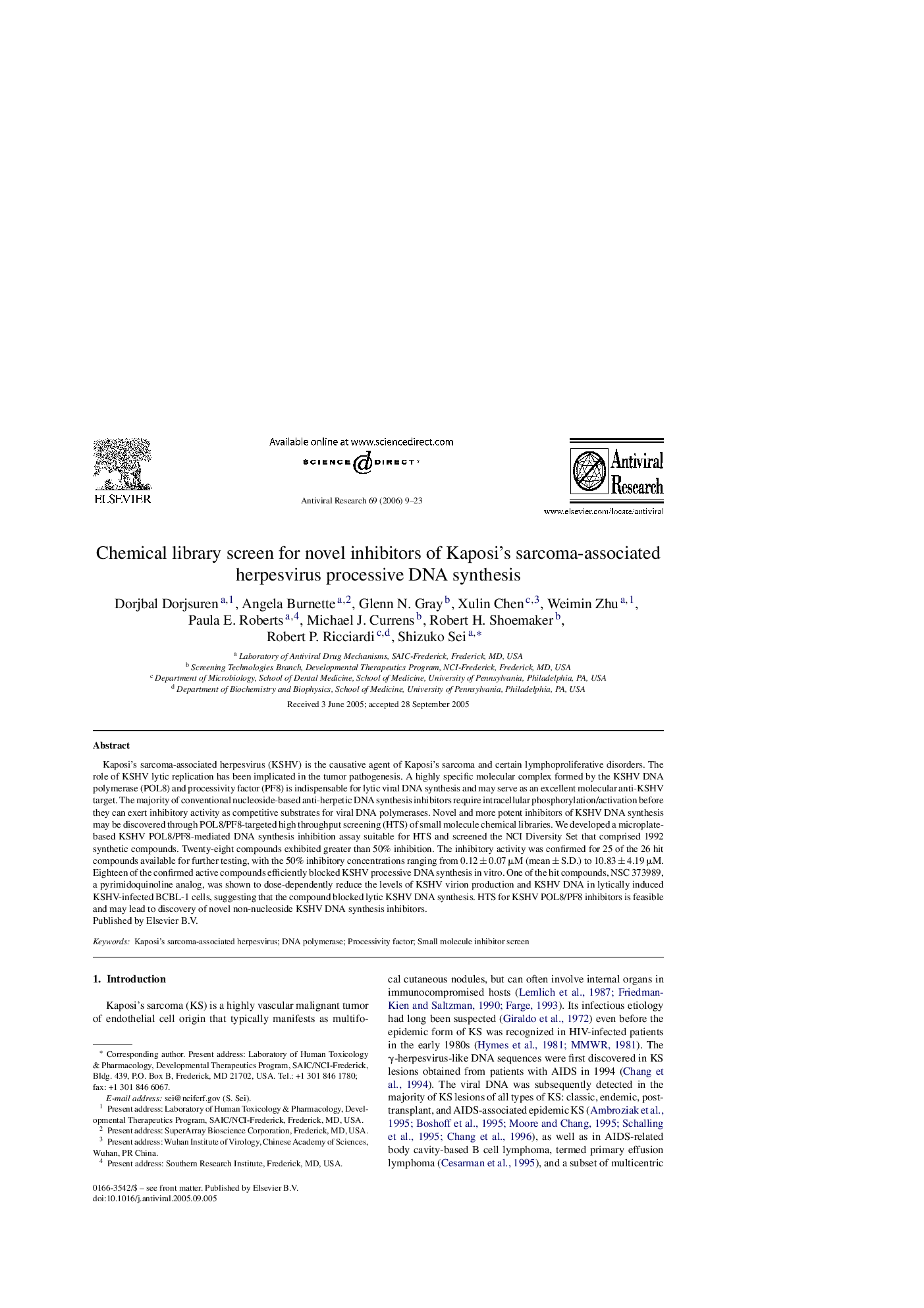| Article ID | Journal | Published Year | Pages | File Type |
|---|---|---|---|---|
| 2511727 | Antiviral Research | 2006 | 15 Pages |
Kaposi's sarcoma-associated herpesvirus (KSHV) is the causative agent of Kaposi's sarcoma and certain lymphoproliferative disorders. The role of KSHV lytic replication has been implicated in the tumor pathogenesis. A highly specific molecular complex formed by the KSHV DNA polymerase (POL8) and processivity factor (PF8) is indispensable for lytic viral DNA synthesis and may serve as an excellent molecular anti-KSHV target. The majority of conventional nucleoside-based anti-herpetic DNA synthesis inhibitors require intracellular phosphorylation/activation before they can exert inhibitory activity as competitive substrates for viral DNA polymerases. Novel and more potent inhibitors of KSHV DNA synthesis may be discovered through POL8/PF8-targeted high throughput screening (HTS) of small molecule chemical libraries. We developed a microplate-based KSHV POL8/PF8-mediated DNA synthesis inhibition assay suitable for HTS and screened the NCI Diversity Set that comprised 1992 synthetic compounds. Twenty-eight compounds exhibited greater than 50% inhibition. The inhibitory activity was confirmed for 25 of the 26 hit compounds available for further testing, with the 50% inhibitory concentrations ranging from 0.12 ± 0.07 μM (mean ± S.D.) to 10.83 ± 4.19 μM. Eighteen of the confirmed active compounds efficiently blocked KSHV processive DNA synthesis in vitro. One of the hit compounds, NSC 373989, a pyrimidoquinoline analog, was shown to dose-dependently reduce the levels of KSHV virion production and KSHV DNA in lytically induced KSHV-infected BCBL-1 cells, suggesting that the compound blocked lytic KSHV DNA synthesis. HTS for KSHV POL8/PF8 inhibitors is feasible and may lead to discovery of novel non-nucleoside KSHV DNA synthesis inhibitors.
